- Home
- English-articles, life
- About the Four Seasons in Japan
About the Four Seasons in Japan
- 2023/5/11
- English-articles, life
- Write comment
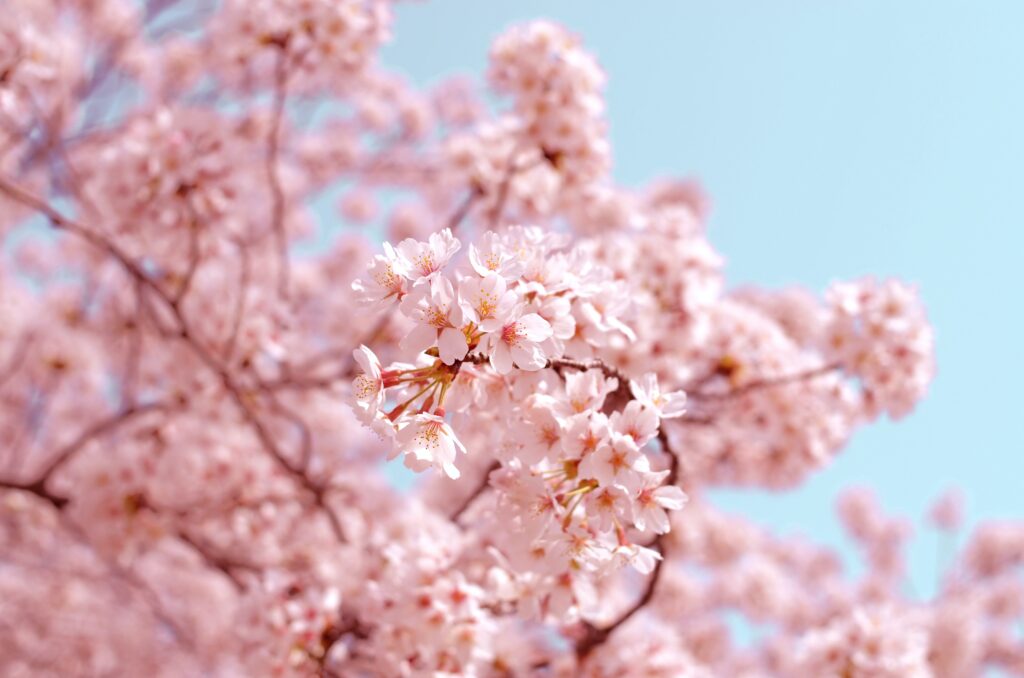
About the Four Seasons in Japan
Japan’s climate varies by region, but it is known for its distinct four seasons, with summer and winter being particularly contrasting.
Japan’s climate is characterized by distinct four seasons, with hot summers and cold winters. As a long island nation stretching from Hokkaido to Okinawa, Japan’s climate also varies by region. Generally, Japan has various climate classifications from subarctic to subtropical. Here, we briefly describe three representative regions of Japan’s climate.
-1024x989.jpg)
Hokkaido and Tohoku Region:
Winter is extremely cold with heavy snowfall, making winter sports such as skiing and snowboarding popular. On the other hand, summer is relatively cool and comfortable.
Kanto and Chubu Region:
Winter is cold, and summer is hot and humid. Especially during the rainy season, there is a lot of rain and the climate can be damp. However, autumn is beautiful with colorful leaves, attracting many visitors.
Kinki and Kyushu Region:
The Kinki and Kyushu regions have very hot and humid summers. On the other hand, winter is relatively warm and mild. Kyushu is susceptible to typhoon damage, and caution is needed as typhoons often occur in autumn.
Benefits and Drawbacks of Living in Japan’s Four Seasons
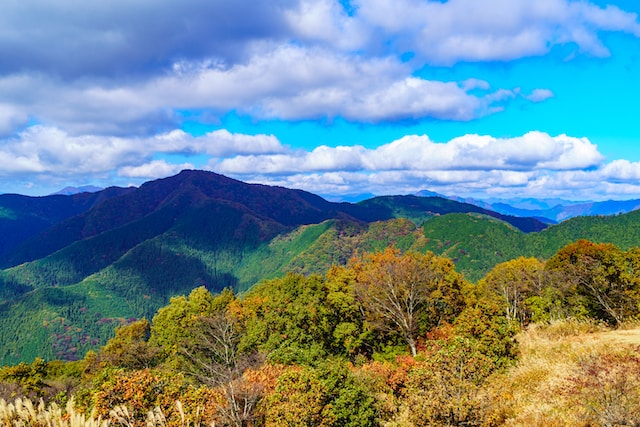
Japan’s four seasons offer both advantages and disadvantages for livability.
○Advantages
One advantage is the ability to enjoy different scenery, cultures, foods, and more each season. For example, cherry blossom viewing in spring, beach trips and festivals in summer, autumn foliage viewing in fall, and skiing or hot pot cuisine in winter provide enjoyable experiences throughout the year. Additionally, the distinct seasons allow for the development of clothing and lifestyle habits that accommodate the climate, which can have a positive impact on one’s health.
■Ways to enjoy each season:
〔Spring: Cherry blossom viewing and strolls〕
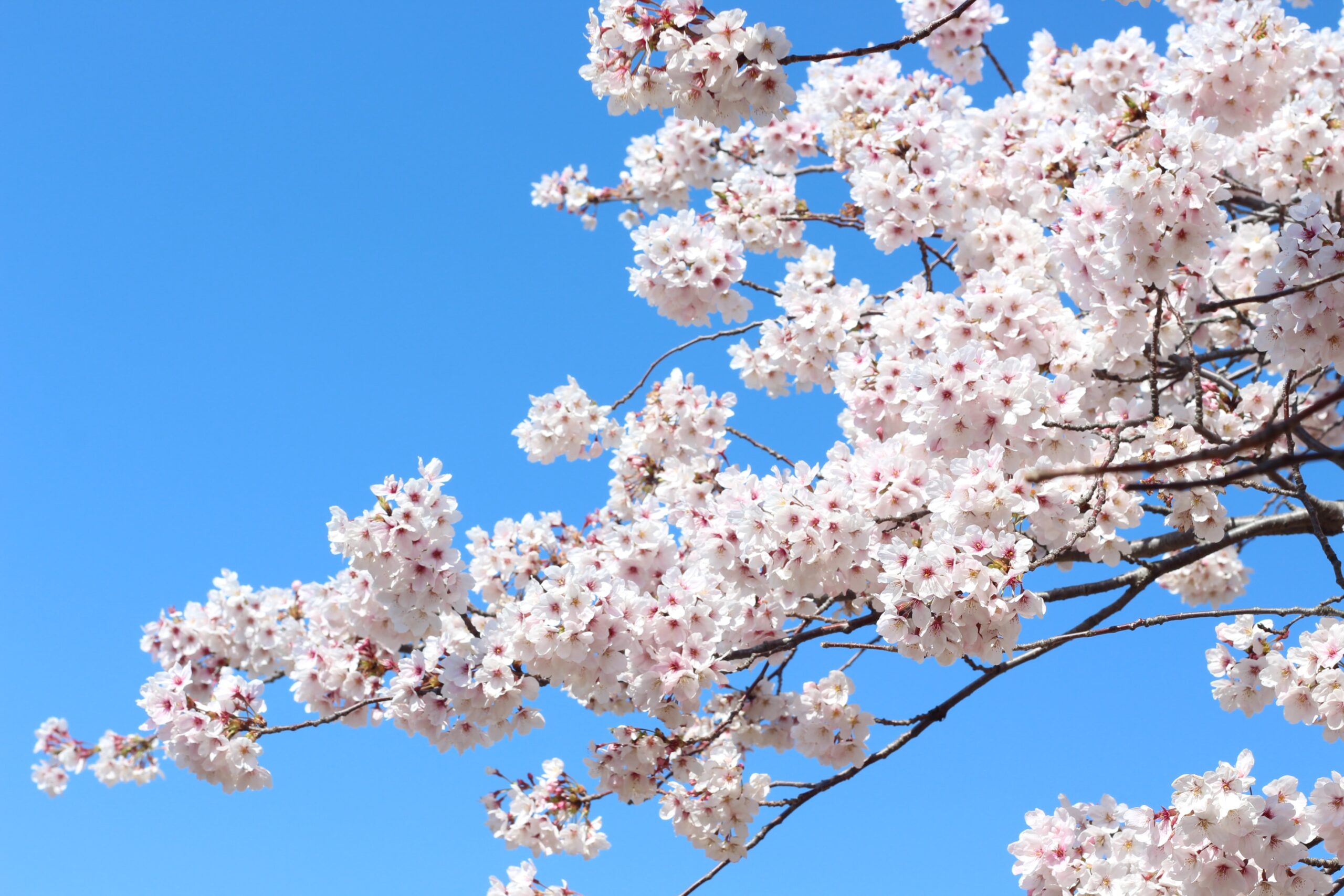
- Cherry blossom viewing: In spring, cherry blossoms bloom and cherry blossom viewing is a popular activity in Japan. It’s common to bring a bento box and enjoy the cherry blossoms in parks or along riversides.
- Strolls amid fresh greenery: Spring is a beautiful season with fresh greenery. It’s also enjoyable to take a stroll in the mountains or parks while feeling the fresh air.
〔Summer: Beach trips and fireworks festivals〕

- Beach trips or pools: In summer, you can cool off by swimming in the ocean or pools. There are many beaches and pools in Japan where you can enjoy the summer heat.
- Beach trips or pools: In summer, you can cool off by swimming in the ocean or pools. There are many beaches and pools in Japan where you can enjoy the summer heat.
〔Autumn: Leaf-peeping and autumn food〕
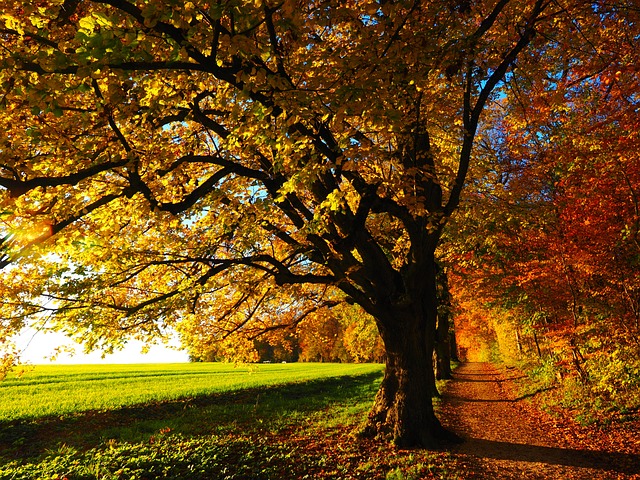
- Leaf-peeping: Autumn is a season with beautiful autumn leaves. You can enjoy leaf-peeping in the mountains or parks.
- Autumn food: Autumn is also known as the season of good appetite in Japan. You can enjoy autumn flavors such as chestnuts, persimmons, and sweet potatoes.
〔Winter: Skiing and hot springs〕
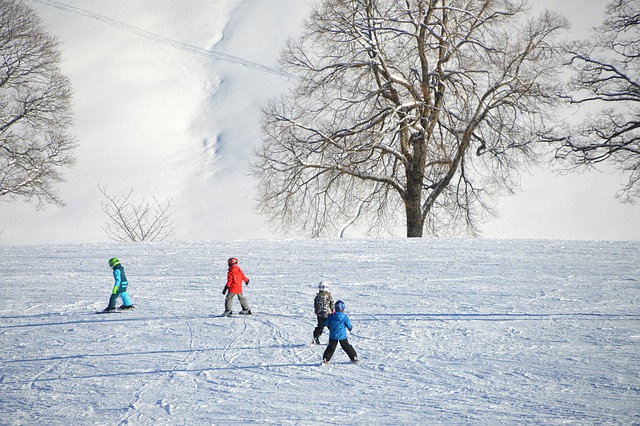
- Skiing or snowboarding: In winter, there are many ski resorts where you can enjoy skiing or snowboarding on the snow.
- Hot springs: In winter, you can warm up in hot springs. There are many hot springs in Japan where you can ease the coldness of winter.
○Downsides of Living in Japan
On the other hand, some downsides of living in Japan include the fact that many people get sick during seasonal transitions, so it is necessary to take care of your health. Additionally, heating costs can be high during the winter and air conditioning costs can be high during the summer, which can be a financial burden.
Furthermore, Japan is susceptible to natural disasters such as typhoons, heavy rain, and heavy snow depending on weather conditions, which can have an impact on daily life. Therefore, appropriate preparation and caution are necessary.
■Types of Natural Disasters
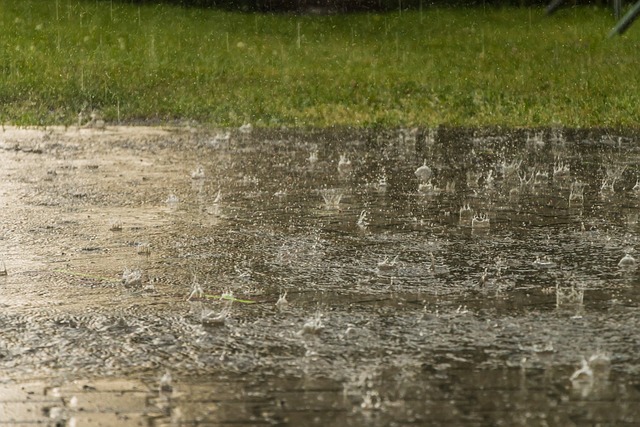
〔Earthquakes〕
Japan is located in an earthquake zone where three plates – the Pacific plate, the Philippine Sea plate, and the Eurasian plate – converge, leading to frequent earthquakes. In particular, major earthquakes like the Great East Japan Earthquake and the Hanshin-Awaji Earthquake have occurred in the past.
〔Typhoons〕
Japan experiences many typhoons during the summer and fall, which can bring strong winds and heavy rain that cause significant damage. Recently, there have been typhoons like Typhoon Hagibis and Typhoon Halong that caused significant damage.
〔Floods and Landslides〕
Flooding and landslides can occur due to typhoons, heavy rain, and other causes. In the past, there have been major landslides like the one that occurred in Nagaoka City during the 2004 Niigata-Chuetsu Earthquake.
〔Heavy Rainfall〕
Intense rain that lasts for several hours or days is referred to as “heavy rainfall” in Japan. This can lead to flooding and landslides in river areas. The Japan Meteorological Agency provides predictions for heavy rainfall and takes measures for disaster prevention by calling on local governments and citizens to be cautious. The government and local governments also work on disaster prevention measures such as river improvement and development of evacuation sites in flood-prone areas.
In summary, Japan has four distinct seasons, each with its own charm. Spring has cherry blossoms and new greenery, summer has fireworks and festivals, autumn has autumn leaves and a harvest season, and winter has hot springs and skiing. To fully enjoy Japan’s four seasons, it is important to prepare appropriate clothing and activities for each season. Japan’s traditional culture and cuisine also have a sense of seasonality, allowing for enjoyment of seasonal customs. Experiencing life in Japan while feeling the seasons is a wonderful experience. Please enjoy Japan’s four seasons and lead a rich life.
Comment
No trackbacks yet.

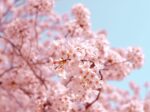
No comments yet.